Committee Members
Jay A Berzofsky, M.D., Ph.D
Chief, Vaccine Branch, Center for Cancer Research, National Cancer Institute, NIH, USA
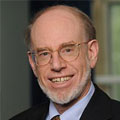 Dr. Jay A Berzofsky was appointed chief of the new Vaccine Branch, Center for Cancer Research, National Cancer Institute, in 2003 after having served as chief of the Molecular Immunogenetics and Vaccine Research Section, Metabolism Branch, National Cancer Institute, NIH, since 1987. He graduated Summa cum Laude from Harvard (1967), and received a Ph.D. and M.D. from Albert Einstein College of Medicine. After interning at Massachusetts General Hospital, he joined NIH in 1974. Dr. Berzofsky's research has focused on antigen processing and presentation by MHC molecules, the structure of antigenic determinants, cytokine and regulatory cell control of T cell function and avidity, and translation to the design of vaccines for AIDS, malaria, cancer, and viruses causing cancer. He has published 476 scientific works. Dr. Berzofsky has received a number of awards, including the U.S. Public Health Service Superior Service Award, the 31st Michael Heidelberger Award, the McLaughlin Visiting Professorship, the Australasian Society for Immunology Visiting Lectureship, and the Tadeusz J. Wiktor Memorial Lectureship. He is the past president of the American Society for Clinical Investigation, and a fellow of the American Association for the Advancement of Science and was elected Distinguished Alumnus of the Year for 2007 by the Albert Einstein College of Medicine. He was also elected chair of the Medical Sciences Section of the American Association for the Advancement of Science (AAAS) 2007-08. He won the NIH Director's Award and NCI Merit Award in 2008 and a Merit Award in 2011.
Dr. Jay A Berzofsky was appointed chief of the new Vaccine Branch, Center for Cancer Research, National Cancer Institute, in 2003 after having served as chief of the Molecular Immunogenetics and Vaccine Research Section, Metabolism Branch, National Cancer Institute, NIH, since 1987. He graduated Summa cum Laude from Harvard (1967), and received a Ph.D. and M.D. from Albert Einstein College of Medicine. After interning at Massachusetts General Hospital, he joined NIH in 1974. Dr. Berzofsky's research has focused on antigen processing and presentation by MHC molecules, the structure of antigenic determinants, cytokine and regulatory cell control of T cell function and avidity, and translation to the design of vaccines for AIDS, malaria, cancer, and viruses causing cancer. He has published 476 scientific works. Dr. Berzofsky has received a number of awards, including the U.S. Public Health Service Superior Service Award, the 31st Michael Heidelberger Award, the McLaughlin Visiting Professorship, the Australasian Society for Immunology Visiting Lectureship, and the Tadeusz J. Wiktor Memorial Lectureship. He is the past president of the American Society for Clinical Investigation, and a fellow of the American Association for the Advancement of Science and was elected Distinguished Alumnus of the Year for 2007 by the Albert Einstein College of Medicine. He was also elected chair of the Medical Sciences Section of the American Association for the Advancement of Science (AAAS) 2007-08. He won the NIH Director's Award and NCI Merit Award in 2008 and a Merit Award in 2011.
Magdalena Tary Lehmann M.D., Ph.D
Chief Scientific Officer, Cellular Technology Limited (CTL), USA
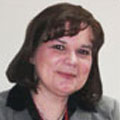 Dr. Magdalena Tary Lehmann received her M.D. and Ph.D. in Immunology, both from the University of Tubingen, Germany. Her postdoctoral training in Immunology was at the University of California, Los Angeles. Thereafter, she went on to Case Western Reserve University as a faculty member, where she was awarded tenure and appointed Associate Professor in the Department of Pathology in 2003. As Chief Scientific Officer for CTL, she provides guidance and oversight for technical operations, ensuring the ongoing scientific excellence of the company. For more than 10 years, she has worked with various pharmaceutical and biotechnology clients in developing, validating and performing regulated immunology assays in CTL's GLP- and CLIA- compliant laboratory.
Dr. Magdalena Tary Lehmann received her M.D. and Ph.D. in Immunology, both from the University of Tubingen, Germany. Her postdoctoral training in Immunology was at the University of California, Los Angeles. Thereafter, she went on to Case Western Reserve University as a faculty member, where she was awarded tenure and appointed Associate Professor in the Department of Pathology in 2003. As Chief Scientific Officer for CTL, she provides guidance and oversight for technical operations, ensuring the ongoing scientific excellence of the company. For more than 10 years, she has worked with various pharmaceutical and biotechnology clients in developing, validating and performing regulated immunology assays in CTL's GLP- and CLIA- compliant laboratory.
Michael G Hanna Ph.D
Vaccinogen Inc., USA
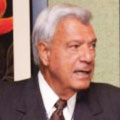 Dr. Michael G Hanna, Jr. received his Ph.D in experimental pathology and immunology from the University of Tennessee (TN, USA) in the 1960s. He was a consultant with NASA for the lunar receiving laboratory during Apollo 11 and 12, for which his expertise in immunology was used in the testing of the lunar core powder for immunogenic or pathogenic materials. Dr. Hanna served during 1974–83 as Director of the National Cancer Institute, Frederick Cancer Research Center (MD, USA). He was Chief Operating Officer during 1985–94 of Organon Teknika/Biotechnology Research Institute and Senior Vice President of Organon Teknika Corporation, a subsidiary of Akzo Nobel, Netherlands. He developed and obtained approvals for TICE BCG for the treatment of carcinoma in situ (CIS) bladder cancer, which remains the standard of care for prophylaxis of recurrence of superficial bladder cancer and therapy of CIS. Subsequently, Dr. Hanna founded PerImmune Inc., for which he served as President and Chief Executive Officer before it merged with Intracel Corp. in 1998. He continued to work for Intracel Resources as Chief Scientific Officer and Chairman. In 2007, Dr. Hanna founded Vaccinogen Inc., where he served as Chairman and CEO. Currently, Dr. Hanna is Chairman Emeritus. The company is a pioneer in the field of cancer vaccines and is developing OncoVAX, an autologous vaccine designed to elicit a specific immune response against cancer cells. The Phase 3 vaccine is being investigated for treatment mainly of colon cancer, but also for melanoma and renal cell carcinoma. In addition to cancer therapy research and development, Dr. Hanna has been involved in Homeland Security. He served as Chairman of the Department of Commerce Biotechnology Advisory Committee (1984–9) and also participated in the Department of Defense Technical Working Group for Biotechnology (1988–9). PerImmune completed a Department of Defense contract to manufacture the current effective therapeutic for Botulinum toxin, an equine heptavalent anti-toxin. Dr Hanna's research resulted in over 225 publications in international peer-reviewed journals and book chapters, and he holds 10 patents related to immunotherapy. Dr Hanna has been the recipient of numerous honors and awards and has served on many editorial boards, including for Human Vaccines & Immunotherapeutics.
Dr. Michael G Hanna, Jr. received his Ph.D in experimental pathology and immunology from the University of Tennessee (TN, USA) in the 1960s. He was a consultant with NASA for the lunar receiving laboratory during Apollo 11 and 12, for which his expertise in immunology was used in the testing of the lunar core powder for immunogenic or pathogenic materials. Dr. Hanna served during 1974–83 as Director of the National Cancer Institute, Frederick Cancer Research Center (MD, USA). He was Chief Operating Officer during 1985–94 of Organon Teknika/Biotechnology Research Institute and Senior Vice President of Organon Teknika Corporation, a subsidiary of Akzo Nobel, Netherlands. He developed and obtained approvals for TICE BCG for the treatment of carcinoma in situ (CIS) bladder cancer, which remains the standard of care for prophylaxis of recurrence of superficial bladder cancer and therapy of CIS. Subsequently, Dr. Hanna founded PerImmune Inc., for which he served as President and Chief Executive Officer before it merged with Intracel Corp. in 1998. He continued to work for Intracel Resources as Chief Scientific Officer and Chairman. In 2007, Dr. Hanna founded Vaccinogen Inc., where he served as Chairman and CEO. Currently, Dr. Hanna is Chairman Emeritus. The company is a pioneer in the field of cancer vaccines and is developing OncoVAX, an autologous vaccine designed to elicit a specific immune response against cancer cells. The Phase 3 vaccine is being investigated for treatment mainly of colon cancer, but also for melanoma and renal cell carcinoma. In addition to cancer therapy research and development, Dr. Hanna has been involved in Homeland Security. He served as Chairman of the Department of Commerce Biotechnology Advisory Committee (1984–9) and also participated in the Department of Defense Technical Working Group for Biotechnology (1988–9). PerImmune completed a Department of Defense contract to manufacture the current effective therapeutic for Botulinum toxin, an equine heptavalent anti-toxin. Dr Hanna's research resulted in over 225 publications in international peer-reviewed journals and book chapters, and he holds 10 patents related to immunotherapy. Dr Hanna has been the recipient of numerous honors and awards and has served on many editorial boards, including for Human Vaccines & Immunotherapeutics.
Michael Hust, Ph.D
Technische Universität Braunschweig, Germany
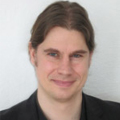 Prof. Dr. Michael Hust studied biology at the Carl von Ossietzky Universität in Oldenburg, Germany, from 1993-1999. He received his PhD from the Leibniz Universität in Hannover, Germany, in 2002. Since end of 2002 he is working as group leader at the Technische Universität Braunschweig, Germany. In 2011, he finished his professorial dissertation (Habilitation, venia legendi for Biotechnology) and was appointed as Privatdozent (PD). In 2014 he was appointed as extraordinary professor (außerplanmäßige Professur) for biotechnology. He published more than 85 articles (including book chapters and reviews) on antibody engineering and phage display. He is the scientific coordinator of the EC FP7 funded project AntibotABE (www.antibotabe.com). He is working on the development of human and human-like antibodies for proteome research, diagnostics and therapy. Another field of work is the identification of immunogenic proteins of pathogens using phage display.
He co-founded the mAb-Factory GmbH in 2007 and the Yumab GmbH in 2012.
Prof. Dr. Michael Hust studied biology at the Carl von Ossietzky Universität in Oldenburg, Germany, from 1993-1999. He received his PhD from the Leibniz Universität in Hannover, Germany, in 2002. Since end of 2002 he is working as group leader at the Technische Universität Braunschweig, Germany. In 2011, he finished his professorial dissertation (Habilitation, venia legendi for Biotechnology) and was appointed as Privatdozent (PD). In 2014 he was appointed as extraordinary professor (außerplanmäßige Professur) for biotechnology. He published more than 85 articles (including book chapters and reviews) on antibody engineering and phage display. He is the scientific coordinator of the EC FP7 funded project AntibotABE (www.antibotabe.com). He is working on the development of human and human-like antibodies for proteome research, diagnostics and therapy. Another field of work is the identification of immunogenic proteins of pathogens using phage display.
He co-founded the mAb-Factory GmbH in 2007 and the Yumab GmbH in 2012.
Geert Vanden Bossche, DVM, Ph.D
Co-Founder and CSO, Univac NV, Belgium
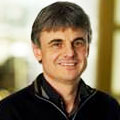 Geert Vanden Bossche obtained his DVM at the Veterinary Faculty of Ghent and his PhD in Virology at the University of Hohenheim, Stuttgart. Following his postdoctoral training in virology, immunology and molecular biology at the Free University of Berlin and Hohenheim (Germany), where he subsequently held adjunct faculty appointments, he transitioned to the Vaccine Industry where he served various senior roles in both early and late vaccine development at GlaxoSmithKline Biologicals, Novartis Vaccines & Diagnostics and Solvay Biologicals. He then joined the Bill & Melinda Gates Foundation to serve as SPO in Vaccine Discovery for Global Health. He is founder of UNIVAC llc in the US and UNIVAC NV in Belgium and visiting scientist at the REGA Institute, University of Leuven (Belgium). Geert is board certified in virology and microbiology, the author of over 30 publications, and inventor on several patent applications. He has presented vaccine- and adjuvant-related topics at multiple international congresses.
Geert Vanden Bossche obtained his DVM at the Veterinary Faculty of Ghent and his PhD in Virology at the University of Hohenheim, Stuttgart. Following his postdoctoral training in virology, immunology and molecular biology at the Free University of Berlin and Hohenheim (Germany), where he subsequently held adjunct faculty appointments, he transitioned to the Vaccine Industry where he served various senior roles in both early and late vaccine development at GlaxoSmithKline Biologicals, Novartis Vaccines & Diagnostics and Solvay Biologicals. He then joined the Bill & Melinda Gates Foundation to serve as SPO in Vaccine Discovery for Global Health. He is founder of UNIVAC llc in the US and UNIVAC NV in Belgium and visiting scientist at the REGA Institute, University of Leuven (Belgium). Geert is board certified in virology and microbiology, the author of over 30 publications, and inventor on several patent applications. He has presented vaccine- and adjuvant-related topics at multiple international congresses.
Max Reynolds, Ph.D
Managing Director, 98 Alive Pty Ltd., Australia
 Max Reynolds has over half a century of global experience in scientific research, business and product development. His commitment and determination to exploring biotechnology and discovering new practical uses for it has led to many advances, including the development of 98 Alive Pty Ltd., which is produced by 98 Alive Pty Ltd of which Professor Reynolds is also the Managing Director. He has previously lectured at leading Australian university, Griffith University in Brisbane, Queensland and has held the position of Director of the Program in Australasia Botanical Medicine for Population Health.
Max Reynolds has over half a century of global experience in scientific research, business and product development. His commitment and determination to exploring biotechnology and discovering new practical uses for it has led to many advances, including the development of 98 Alive Pty Ltd., which is produced by 98 Alive Pty Ltd of which Professor Reynolds is also the Managing Director. He has previously lectured at leading Australian university, Griffith University in Brisbane, Queensland and has held the position of Director of the Program in Australasia Botanical Medicine for Population Health.
Giulio Tarro, Ph.D
Temple University College of Science and Techology, USA
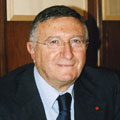 Professor Giulio Tarro has been appointed the Editor-in-Chief of Vaccine Research and Development (VRD), an international, peer-reviewed open access journal published by Spring City Culture International Group.
Dr. Tarro has been engaged in medical research for over 30 years. He was born on July 9, 1938 in Messina, Sicily, where he attended High School, and in 1956 began his medical studies at Messina University and then in 1960 continued at Naples University from which he received his M.D. "summa cum laude" in 1962 and the professorship for Oncological Virology in 1972.
His research work began in 1960 in the virology laboratory of the department of Medical Pathology at the University of Naples and continued during the entire period of his medical studies. In I963 and 1964 he was at the Polyclinic of the University in Naples receiving training in pathology, neurology and internal medicine. In 1965 he went to the Children's Hospital Research Foundation at the University of Cincinnati, where he worked with Dr. Albert B. Sabin as a Research associate for three years and, subsequently, in 1968 and 1969 he was assistant Professor of Research Paediatrics at the same University. From there Dr. Tarro went back to Naples and established a virology laboratory at the Hospital for Infectious Diseases with the help of a Research Contract from the National Cancer Institute (U.S.A.). In 1973 Dr. Tarro worked as Senior Scientist at the Frederick Cancer Research Centre with Dr. Albert Sabin, who was then a special consultant for the National Cancer Institute. His most notable work provided experimental evidence for the association of herpes viruses with cancer of the cervix. Although at first controversial, this work has been carried out by several laboratories using different techniques.
Dr. Tarro's researches in Virology have been both basic and mission oriented. His basic researches have been concerned with antigens induced early during the replication cycle of herpes simplex virus (HSV). Specific antibodies were detected by the enzyme-linked immunosorbent assay in the serum of patients affected with certain carcinomas of the head, neck and urogenital tract. His mission-oriented research has dealt with many aspects of various infectious diseases including broncho-pneumonia, encephalitis, cholera, and the diseases caused by different viruses.
During 1979 he was engaged in research on an epidemic disease in Naples called the "dark disease". Dr. Tarro isolated the respiratory syncytial virus (RSV) and found antibody evidence that this virus was behind the epidemic. The World Health Organization expert were called in and agreed most cases of disease were caused by RSV. In 1981 he suggested the proper use of interferon to cure the cytomegalovirus infection affecting the pope John Paul the second who underwent long surgical operation and received huge blood transfusion after the killing attempt.
Dr. Tarro is currently engaged in scientific research related to the separation and identification of tumour antigens present on cell membranes and their potential value in immunotherapy for cancer. He has shown that specific soluble antigens may be used in various tests for a further understanding of their role in various cancer systems. Another study has involved the identification, isolation and characterization of specific virus-induced tumour antigens, which were the "finger-prints" left behind in tumours induced in man by human herpes viruses. Intramural activities have included being director of thesis and research for many candidates; director of medical research fellowships for medical students; participation in research planning for clinical colleagues; teaching virology, oncology and immunology to medical and graduate students.
He is on the editorial board of various Italian medical journals. Dr. Tarro has been elected to membership of many academies and societies. He has also been the recipient of many awards and honours. Dr. Tarro is life president of the T. and L. de Beaumont Bonelli Foundation for Cancer Research officially recognized by Italian presidential decree n. 36 of January 3, 1978. The aim of the Foundation is the promotion of scientific research on cancer and was instituted thanks to the generous donation of the late Teresa Berger who left to the foundation a large part of her patrimony, whereas the late husband, the Earl Luigi de Beaumont Bonelli, left most of his patrimony to the Nobel foundation.
Dr. Tarro became Division Chief of Virology (1973-2003), and then Department Chief of Diagnostic Laboratories (2003-2006), D. Cotugno Hospital for Infectious Diseases, Naples; Emeritus, 2006. He was the Scientific Coordinator of extracorporeal hyperthermia in HCV patients, First Circle Medicine, Minneapolis (2000-2003). Since 2007 he is Chairman Committee on Biotechnologies and VirusSphere World Academy Biomedical Technologies, UNESCO, and Adjunct Professor Department Biology Temple University College of Science and Techology, Philadelphia, USA.
Professor Giulio Tarro has been appointed the Editor-in-Chief of Vaccine Research and Development (VRD), an international, peer-reviewed open access journal published by Spring City Culture International Group.
Dr. Tarro has been engaged in medical research for over 30 years. He was born on July 9, 1938 in Messina, Sicily, where he attended High School, and in 1956 began his medical studies at Messina University and then in 1960 continued at Naples University from which he received his M.D. "summa cum laude" in 1962 and the professorship for Oncological Virology in 1972.
His research work began in 1960 in the virology laboratory of the department of Medical Pathology at the University of Naples and continued during the entire period of his medical studies. In I963 and 1964 he was at the Polyclinic of the University in Naples receiving training in pathology, neurology and internal medicine. In 1965 he went to the Children's Hospital Research Foundation at the University of Cincinnati, where he worked with Dr. Albert B. Sabin as a Research associate for three years and, subsequently, in 1968 and 1969 he was assistant Professor of Research Paediatrics at the same University. From there Dr. Tarro went back to Naples and established a virology laboratory at the Hospital for Infectious Diseases with the help of a Research Contract from the National Cancer Institute (U.S.A.). In 1973 Dr. Tarro worked as Senior Scientist at the Frederick Cancer Research Centre with Dr. Albert Sabin, who was then a special consultant for the National Cancer Institute. His most notable work provided experimental evidence for the association of herpes viruses with cancer of the cervix. Although at first controversial, this work has been carried out by several laboratories using different techniques.
Dr. Tarro's researches in Virology have been both basic and mission oriented. His basic researches have been concerned with antigens induced early during the replication cycle of herpes simplex virus (HSV). Specific antibodies were detected by the enzyme-linked immunosorbent assay in the serum of patients affected with certain carcinomas of the head, neck and urogenital tract. His mission-oriented research has dealt with many aspects of various infectious diseases including broncho-pneumonia, encephalitis, cholera, and the diseases caused by different viruses.
During 1979 he was engaged in research on an epidemic disease in Naples called the "dark disease". Dr. Tarro isolated the respiratory syncytial virus (RSV) and found antibody evidence that this virus was behind the epidemic. The World Health Organization expert were called in and agreed most cases of disease were caused by RSV. In 1981 he suggested the proper use of interferon to cure the cytomegalovirus infection affecting the pope John Paul the second who underwent long surgical operation and received huge blood transfusion after the killing attempt.
Dr. Tarro is currently engaged in scientific research related to the separation and identification of tumour antigens present on cell membranes and their potential value in immunotherapy for cancer. He has shown that specific soluble antigens may be used in various tests for a further understanding of their role in various cancer systems. Another study has involved the identification, isolation and characterization of specific virus-induced tumour antigens, which were the "finger-prints" left behind in tumours induced in man by human herpes viruses. Intramural activities have included being director of thesis and research for many candidates; director of medical research fellowships for medical students; participation in research planning for clinical colleagues; teaching virology, oncology and immunology to medical and graduate students.
He is on the editorial board of various Italian medical journals. Dr. Tarro has been elected to membership of many academies and societies. He has also been the recipient of many awards and honours. Dr. Tarro is life president of the T. and L. de Beaumont Bonelli Foundation for Cancer Research officially recognized by Italian presidential decree n. 36 of January 3, 1978. The aim of the Foundation is the promotion of scientific research on cancer and was instituted thanks to the generous donation of the late Teresa Berger who left to the foundation a large part of her patrimony, whereas the late husband, the Earl Luigi de Beaumont Bonelli, left most of his patrimony to the Nobel foundation.
Dr. Tarro became Division Chief of Virology (1973-2003), and then Department Chief of Diagnostic Laboratories (2003-2006), D. Cotugno Hospital for Infectious Diseases, Naples; Emeritus, 2006. He was the Scientific Coordinator of extracorporeal hyperthermia in HCV patients, First Circle Medicine, Minneapolis (2000-2003). Since 2007 he is Chairman Committee on Biotechnologies and VirusSphere World Academy Biomedical Technologies, UNESCO, and Adjunct Professor Department Biology Temple University College of Science and Techology, Philadelphia, USA.
